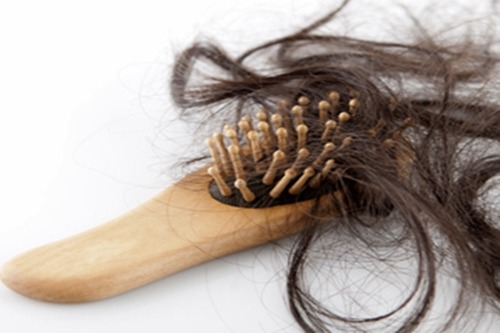Androgenetic alopecia, as the condition is known, is male hormone-related but isn't caused by too much testosterone. Instead, the hair follicles become sensitive, due to a genetic predisposition, to normal levels of male hormones in a woman's body.
It is unfortunate but true that Physicians these days seem to have less and less education on many conditions, and being proactive on behalf of your own health is imperative to getting good treatment. The average doctor knows little about men's hair loss, let alone women's, which is far more complex.
Helpful supplements to prevent hair loss
A balanced diet can help prevent or reverse hair loss when it’s cause by nutritional deficiencies, but supplements can also be useful. The principal nutrients involved in healthy hair growth are vitamin A, certain B vitamins, biotin, vitamin C, copper, iron and zinc. Sufficient protein and water intake are also important.
1. Iron: This mineral’s main job is to carry oxygen in the hemoglobin of red blood cells. Iron deficiency can lead to a condition called anemia and to possible hair loss or increased hair shedding. Anemia can be easily diagnosed with a blood test and is characterized by fatigue, weakness and general poor health. The recommended daily intake for iron is 18 mg (which increases during pregnancy and breastfeeding).
2. Zinc: Dandruff and hair loss are both conditions associated with zinc deficiency. Zinc is a mineral that promotes cell reproduction and tissue growth and repair. It also functions in the maintenance of the oil-secreting glands attached to hair follicles. Aim for 15 mg per day.

3. Vitamin B6, B12, folic acid and biotin: All of these B vitamins are essential to the creation of red blood cells or the hemoglobin (iron-containing) portion of red blood cells. Hemoglobin’s main function is to carry oxygen from the lungs to tissues in the body, including the hair. Healthy and strong hair requires a constant supply of blood and oxygen. A deficiency of these B vitamins can cause reduced blood and oxygen supply to the hair, leading to increased hair shedding, damaged hair and slow regrowth. Although uncommon, sometimes a biotin deficiency can also contribute to hair loss.
4. Vitamin C: A vitamin-C deficiency can make hair more likely to split and break. This usually only occurs with severe deficiency and can be reversed when vitamin C intake is increased.
Vitamin C is essential for producing collagen, a connective tissue that gives structure by holding tissues in the body together, including the tissue in hair. I recommend 60 mg/day for the average adult. People who smoke need double that amount. Many of my patients take 1,000 mg of vitamin C two to four times daily.